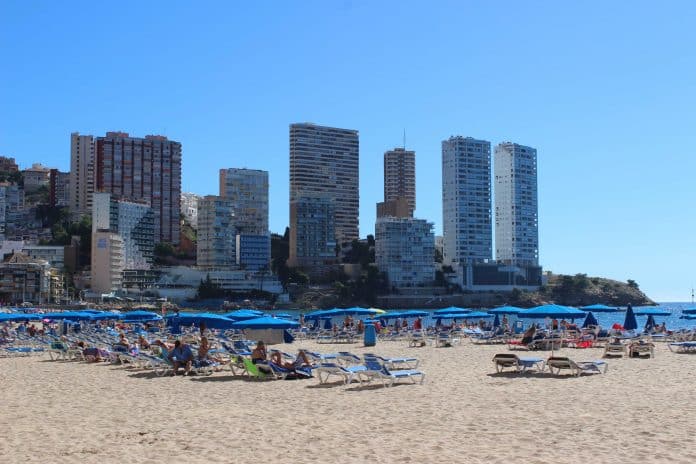A report by the Generalitat, from data provided by the Exceltur business lobby, tourism in the Valencian Community has grown by 5% and now represents 30% of the Spanish market, six points more than the Madrid. The figures translate to an annual income of 2,000 million euros on the Costa Blanca.
In an economy that now enjoys higher levels of employment, growth of consumption and improvement of the purchasing power of the families in the Community, their spending associated with tourism has recovered both in travel and local excursions, according to the Consell, with far more people now filling hotel rooms throughout the year over bank holidays and long weekends.
The study shows that the economic impact of the tourism market this year experienced a year-on-year growth of 6.4% to 3,058 million euros. An amount that represents 17% of the total GDP of tourism within the Valencian Community.
According to the Consell, the impact of regional tourism on the Community’s GDP amounts to 3,058 million euros of which 17.3% is contributed by the native tourist, while the rest of Spanish tourism (residents in Spain, but not in the Community) contribute 21.5% and the foreign tourist 47.4%.
This is the first year since 2013 that the Community income from tourism has exceeded 3,000 million euros.
Benidorm, the most popular tourist destination in Spain, is the Alicante municipality that has benefited most from this recovery. Many hotels, even, have special promotions for weekends and festive bridges, seeking to attract that customer profile from inland towns in the province and, even, Valencia and Castellón.
Among the direct effects are those generated in the subsectors of activities that are in direct contact with tourists: hotels, restaurants, travel agencies, car rental and passenger transport companies, leisure service providers.
The report also reveals that the indirect effects, that is, those induced on other areas of activity in the productive fabric of the Community, suppliers of intermediate goods and services for the tourism sector, such as farmers, food suppliers, construction, textile companies or electricity, gas and water or advisory services to companies, this year amounted to 3,300 million euros, amount that is equivalent to 3% of the economy as a whole of the three provinces.
While tour operators and promoters predict that 2019 will be a “good year” from the point of view of outbound tourism, they nevertheless warn of uncertainties derived from the uncertainty of “Brexit”, the rise of the competing markets after their recovery, political stability in Spain and the development of the Spanish economy.





